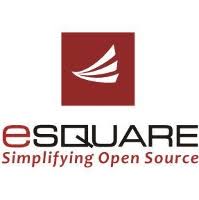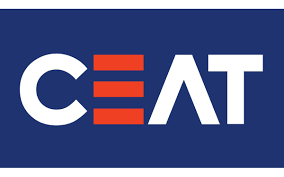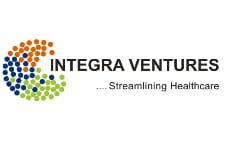











Read More
Bachelor of Technology in Computer Science and Engineering (DS and AI) is an Under Graduate Degree awarded for the programme of Computer Science and Engineering. As one of the best computer engineering colleges, we intend to create a cohesive learning experience with the latest technological developments to that of industry demand.
Year wise Course Details
Courses for this semester
This course provides the basic working knowledge of the production and properties of different materials used in the industry. It also explains the use of different tools, equipments, machinery and techniques of manufacturing, which ultimately facilitate shaping of these materials into various usable forms. Ingeneral, various mechanical workshops know by long training how to use workshop tools, machine tools and equipment. Trained and competent persons should be admitted to this type of mechanical works and permitted to operate equipment.
This course is designed to provide students with a foundational understanding of linear algebra and univariate calculus, two essential areas of mathematics with wide applications in science, engineering and computer science.
Engineering Physics is an interdisciplinary course that combines principles of physics with engineering applications. It provides students with a deep understanding of the fundamental concepts in physics while emphasizing their relevance to solving engineering problems. This course covers key areas such as mechanics, electromagnetism, thermodynamics, and modern physics, offering practical insights into how these principles are applied in various engineering fields like electronics, materials science, and mechanical engineering.
This course provides an introduction to the fundamental principles of electrical and electronics engineering. It covers essential concepts such as circuit theory, electrical machines, semiconductor devices, and basic electronics. The course is designed to build a foundation for understanding the functioning, design, and analysis of electrical circuits and electronic devices used in engineering applications.
MOOCS course
It is to develop the social and soft skills and to promote a holistic development of the learners.
Software Foundation with C++ provides a foundational understanding of programming principles using the C++ language. The course covers basic to intermediate concepts, including data types, control structures, functions, classes, and object-oriented programming (OOP) principles. Through practical exercises and projects, students will gain hands-on experience in software development, debugging, and problem-solving using C++.
Courses for this semester
This course offers students with a comprehensive overview of fundamental ecological principles, environmental chemistry, biodiversity conservation, and the impacts of human activities on the environment. Through a blend of theoretical knowledge and practical applications, students delve into the complexities of pollution, resource management, and sustainable development. The course emphasizes the interconnectedness of ecological systems, aiming to cultivate an understanding of the delicate balance required for environmental harmony. By studying environmental chemistry, biodiversity, and pollution, students develop the skills needed to critically analyze and propose solutions to contemporary environmental challenges.
This course provides a comprehensive introduction to Git, a powerful version control system, and GitHub, a popular platform for collaborative development. Designed for beginners, it covers the fundamental concepts, workflows, and best practices for version control and collaboration on software projects. By the end of the course, learners will have the skills to efficiently track, manage, and share their code with teams or the wider community.
Data Structures are the main part of many computer science algorithms as they enable the programmers to handle the data in an efficient way. It plays a vital role in enhancing the performance of a software or a program as the main function of the software is to store and retrieve the user's data as fast as possible. The scope of a data structure course typically covers the fundamental concepts and techniques related to organizing and managing data effectively in computer programs. Data structures are essential components in computer science and programming as they provide efficient ways to store, access, and manipulate data, leading to better algorithm design and optimization.
This course introduces the foundational concepts of React, a powerful JavaScript library for building dynamic and responsive user interfaces. Learners will explore React's core features, including components, state management, and hooks, to create modular and interactive web applications. By the end of the course, participants will have the skills to build and deploy functional single-page applications using best practices in React development.
The Programming with Python course is designed to introduce learners to the fundamentals of Python, enabling them to write efficient programs and solve real-world problems. The course begins with the basics of Python syntax, variables, and data types, gradually advancing to control flow, functions, and object-oriented programming. Participants will explore essential data structures like lists, dictionaries, and sets while also learning file handling and error management. The course incorporates hands-on experience with popular Python libraries such as NumPy, Pandas, and Matplotlib, alongside practical applications like web scraping, automation, and working with APIs
This course offers designing and developing applications involving Object Oriented Programming concepts such as inheritance, association, aggregation, composition, polymorphism, abstract classes and interfaces using Java. It also covers designing and building multi-threaded Java Applications etc.
Courses for this semester
Logical reasoning for computer science focuses on equipping students with the foundational skills to analyze, interpret, and evaluate logical structures and problem-solving techniques relevant to computational systems. The course delves into topics such as propositional and predicate logic, proof techniques, logical circuits, algorithmic reasoning, and applications of logic in computer science domains like artificial intelligence, databases, and software verification. Students will engage in theoretical learning, problem-solving exercises, and practical applications to bridge the gap between logic and computational thinking.
This course provides a comprehensive introduction to the principles and applications of digital electronics. It covers the fundamentals of number systems, logic gates, combinational and sequential circuits, and digital logic design. Emphasis is placed on the design, analysis, and implementation of digital circuits used in computing, communication, and automation systems. Practical laboratory sessions and real-world applications are incorporated to enhance understanding and hands-on experience.
Discrete Mathematics & Graph Theory is a foundational course that explores the mathematical structures and techniques used in computer science, engineering, and mathematics. It focuses on topics such as logic, set theory, combinatorics, relations, functions, graph theory, and algorithms, providing the tools necessary to model, analyze, and solve problems in various fields. The course emphasizes critical thinking and problem-solving, making it integral to understanding complex systems and networks
The course on Computer Organization and Architecture explores the foundational principles and components that underpin the design and functioning of modern computing systems. Topics include computer hardware, memory hierarchies, input/output systems, processor architectures, instruction sets, and performance optimization techniques. Graph Theory delves into the mathematical structures used to model pairwise relations between objects, focusing on topics such as graphs, trees, networks, connectivity, coloring, and algorithms. Together, these subjects provide a comprehensive understanding of how computer systems operate and the mathematical frameworks essential for solving computational problems.
This course on Cloud Fundamentals introduces the core concepts and technologies behind cloud computing, including cloud models (IaaS, PaaS, SaaS), deployment models (public, private, hybrid), and key services offered by cloud providers like AWS, Azure, and Google Cloud. Students will learn about cloud infrastructure, security, scalability, and the benefits of cloud adoption. The course will explore cloud architecture, virtual machines, storage, networking, and disaster recovery strategies, preparing students for hands-on cloud environments.
Courses for this semester
This course covers the principles of user interface (UI) and user experience (UX) design, focusing on creating user-centered and visually appealing designs. Students will learn about wireframing, prototyping, and usability testing, and how to use design tools to build intuitive interfaces. The course also emphasizes understanding user behavior and needs through research methods and user testing.
This course provides an in-depth understanding of the software development life cycle, from requirement gathering to design, coding, testing, and maintenance. Topics include software design methodologies, project management, version control, debugging, and quality assurance. Emphasis is placed on applying best practices and industry standards in real-world software development.
This course introduces students to predictive analytics, focusing on methods and techniques used to make predictions based on historical data. It explores the use of statistical tools, machine learning algorithms, and data visualization techniques to uncover patterns and trends. Students will gain practical experience with real-world datasets and will learn how predictive models can be applied in various business contexts, including marketing, finance, and operations.
This course combines two essential concepts in the modern business world—design thinking and entrepreneurship. It explores how design thinking can be used to foster creativity and innovation in the development of new business ventures. Students will learn how to empathize with customers, define problems, ideate solutions, prototype, and test ideas to create successful entrepreneurial ventures. Additionally, the course covers essential aspects of entrepreneurship, including business model creation, value proposition design, and venture financing.
This course,Data Communication and Computer Network, covers the fundamentals of data transmission, networking concepts, and communication protocols. It explores both wired and wireless networks, emphasizing the OSI and TCP/IP models. Students will learn about data link layer protocols, network topologies, routing algorithms, and error detection and correction techniques. Practical applications of network security and performance analysis are also included.
This course, Signal and Systems, introduces the fundamental concepts of signals and systems, focusing on their analysis and processing. Topics include continuous-time and discrete-time signals, linear time-invariant systems, Fourier transforms, Laplace transforms, and Z-transforms. The course also covers system stability, sampling theory, and filter design, emphasizing their applications in real-world signal processing.
Courses for this semester
This course covers the essential concepts and technologies used in web development. Topics include HTML, CSS, JavaScript, web server setup, client-server communication, front-end and back-end technologies, web frameworks, and web application security.
Web technologies encompass a variety of tools and protocols that enable the creation, management, and functionality of websites and web applications. This includes HTML, CSS, JavaScript, web frameworks, and APIs. These technologies ensure dynamic content delivery, interactive experiences, and seamless communication between servers and clients.
The study of designing efficient algorithms and analyzing their performance. It involves selecting appropriate algorithms to solve problems, considering time and space complexities, and ensuring scalability. It focuses on problem-solving techniques, mathematical foundations, and optimization.
Data Science combines statistics, programming, and domain expertise to extract actionable insights from structured and unstructured data. It involves data collection, cleaning, analysis, visualization, and predictive modeling using techniques like machine learning and AI. Data Science drives decision-making across industries, solving complex problems and unlocking valuable opportunities.
Statistical methods and modeling involve data collection, analysis, interpretation, and prediction using mathematical tools. These techniques include descriptive statistics, probability, hypothesis testing, regression, and machine learning models. They help uncover patterns, make data-driven decisions, and solve real-world problems across disciplines, ensuring informed conclusions and optimized outcomes in uncertain environments.
Courses for this semester
A neural network is a computational model inspired by the human brain, composed of interconnected layers of nodes (neurons). It processes data by learning patterns through training on labeled examples. Neural networks are widely used in applications like image recognition, natural language processing, and decision-making tasks, enabling powerful predictive capabilities.
Data Mining and Analytics involve extracting meaningful patterns, insights, and trends from large datasets using techniques like classification, clustering, regression, and association analysis. It integrates statistics, machine learning, and database systems, enabling businesses to make data-driven decisions, optimize processes, predict outcomes, and uncover hidden relationships in complex data.
Courses for this semester
Machine Learning (ML) is a subset of artificial intelligence that enables systems to learn from data, identify patterns, and make predictions or decisions without explicit programming. It encompasses supervised, unsupervised, and reinforcement learning. ML powers applications like recommendation systems, autonomous vehicles, and natural language processing, revolutionizing industries through data-driven insights.
Image Processing and Pattern Recognition involve techniques for analyzing, enhancing, and understanding visual data. Image processing focuses on transforming images for noise reduction, enhancement, and feature extraction, while pattern recognition identifies meaningful patterns and relationships. Applications include computer vision, medical imaging, biometrics, and autonomous systems.
Cryptography and Network Security involve techniques for securing data transmission and storage. It includes encryption, decryption, authentication, and integrity measures to protect against unauthorized access, cyber threats, and attacks. Key topics include symmetric and asymmetric cryptography, hash functions, digital signatures, firewalls, and secure protocols like SSL/TLS for robust network security.

CST- Common scholarship test is a national and international level online MCQ based examination funded for intellectual empowerment by Assam down town University.
CST- Maximum enrolment each year is 269 seats and any 10+2 students can apply. Adtu is northeast India’s first placement driven university to provide 100% scholarship benefits worth 30 cr.
CST aims to inspire brilliant and competent students to pursue further education. Accredited with a prestigious grade by NAAC, UGC and AICTE.
Explore more scholarships that can help you reach out your goal with financial aid.
This scholarship is valid on the basis of the board/university examination
| 95% & above | 100% Scholarship on all semester |
| 90%-94.9% | 50% Scholarship on all semester |
| 80%-89.9% | 25% Scholarship on all semester |
This scholarship is valid on the basis of the board/university exam
| National & International Level | 100% Scholarship on all semester |
| State Level | 50% Scholarship on all semester |
| District Level | 25% Scholarship on all semester |
This scholarship is valid on the basis of the board/university exam
| National & International Level | 100% Scholarship on all semester |
| State Level | 50% Scholarship on all semester |
| District Level & NCC Certificate Holder | 25% Scholarship on all semester |
Discover a multitude of world-class amenities and cutting-edge resources at Assam down town University, enhancing your academic journey to new heights.
The Start-Up & Incubation Centre at Assam down town University provides a supportive environment for young entrepreneurs to develop and grow their business ideas. The center provides mentorship, funding, and networking opportunities to help innovative ideas become successful businesses.
SFURTI scheme to support rural entrepreneurs and innovators, an initiative by the Ministry of MSME
TIDE 2.0 scheme for ICT-based startups which provides a grant of Rs. 4L and Rs. 7L under EiR and Grant categories respectively, an initiative by the Ministry of MeitY.
dtVL Ideation, an incubation program for early-stage entrepreneurs with a market-ready solution/product, offering interest-free loans up to Rs. 2 lakhs.
Sprout UP, an incubation program for students, faculties, and researchers with innovative business ideas, prototypes, or technology solutions.























.png)


























"I am a BBA student of 3rd semester. I hail from Bhutan. I vow that I am having a great experience i...
"AdtU is amazing. I am a BBA student of 2019-22 batch and I am just grateful for the amount of oppor...
Let us be grateful to the people and place who makes us happy. They are the charming gardeners whom ...
Currently I am pursuing MBA in Assam Down Town University. MBA is the professional course through wh...
AdtU is a university that focuses on giving knowledge, education and simultaneously making the stude...
The Assam downtown University has been a great learning experience. The university has provided me w...
My experience with AdtU has been splendid one indeed. Little needs to said about its scenic infrastr...
As a student I am very glad that I have got an opportunity to study here in Assam downtown universi...
My name is Sakhyajit Roy. I?m from Tripura. I joined the university on Auguest, 2017 as a student of...
I share immense pleasure to share my post graduate program experience in Assam down town University....
AdtU is a platform where I got golden opportunities to feed my zeal for knowledge through the dynami...
I am fortunate to get an opportunity to study here in Assam Downtown University. The best thing abou...
Our university is one of the best place for developing ourselves in the field of research and acedem...
ADTU is a university that is very good interms of infrastructure, academics and placements. Our tea...
It is one of best private colleges in North East India, it also provides a good environment for ed...
ADTU is a good University which provides the students with best quality lectures and ensures comfort...
The environment of Assam downtown university is very pleasant.The department of BMLT is very good a...
The university has all the necessary facilities and amenities for students . The classrooms and the ...
Assam downtown University is well recognised all over india. In the ongoing pandemic situation it ha...








